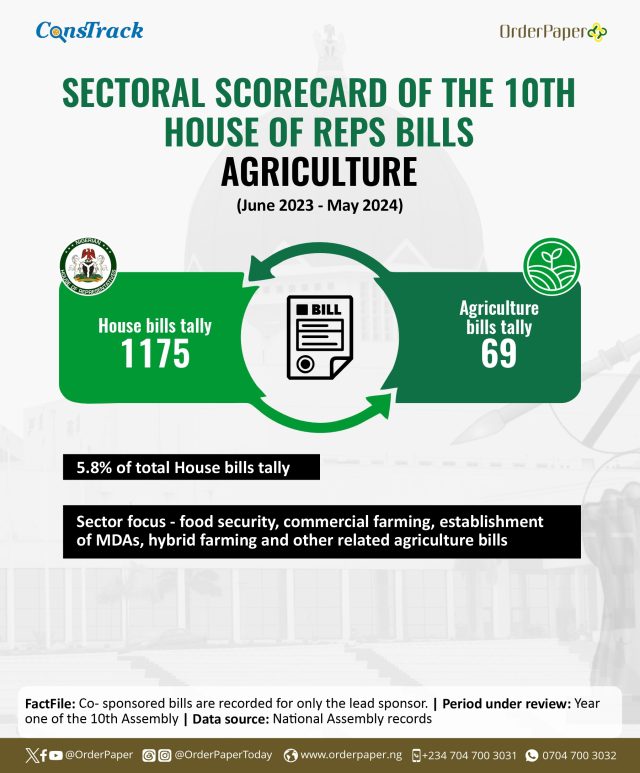Amid calls for revitalizing the non-oil sector, the 10th House of Representatives has sponsored a total of 69 agriculture bills

Since the 1960s, agriculture has been a cornerstone of Nigeria’s economy, employing over 60% of the population and making significant contributions to the nation’s Gross Domestic Product (GDP).
The agricultural sector is broadly categorised into four main divisions: crop production, livestock, fishing, and forestry. These divisions highlight the country’s diverse agricultural landscape, which is essential for ensuring food security and fostering economic development.
In its first year in office, the 10th National Assembly processed 69 agriculture-related bills, accounting for 5.8 percent of the total bills considered. These proposals targeted critical areas within the agricultural sector, including food security, commercial farming, establishment of new ministries, departments and agencies (MDAs), hybrid farming, and other related initiatives.
While the introduction of these bills is a positive step forward, it falls short of addressing the extensive work needed to revitalize the agriculture sector, which has unfortunately become one of the most troubled sectors in the country, necessitating urgent attention and intervention.
READ ALSO: 10th NASSREPORTCARD: 35 agriculture bills sponsored in senate
Why the agriculture sector is imperative
Despite its substantial contributions, the agricultural sector faces numerous challenges that impede its growth and productivity. These challenges include inadequate infrastructure, limited access to financing, and the impacts of climate change.
Additionally, recent years have seen a complex crisis emerge—the farmer-herder crisis—which has instilled fear in rural communities. Many farmers are reluctant to venture into their fields due to safety concerns, and those who do often find their harvests lost to violence and clashes.
To address these pressing issues, strategies must be implemented that focus on investing in infrastructure, enhancing security measures, promoting sustainable farming practices, and providing financial support.
Revitalizing the agricultural sector is crucial for restoring its former glory and enhancing its contribution to national economic development, which will ultimately benefit all citizens.
10th NASS Report Card: Read up on the performance of other senators and members of house and other specialized categories here



